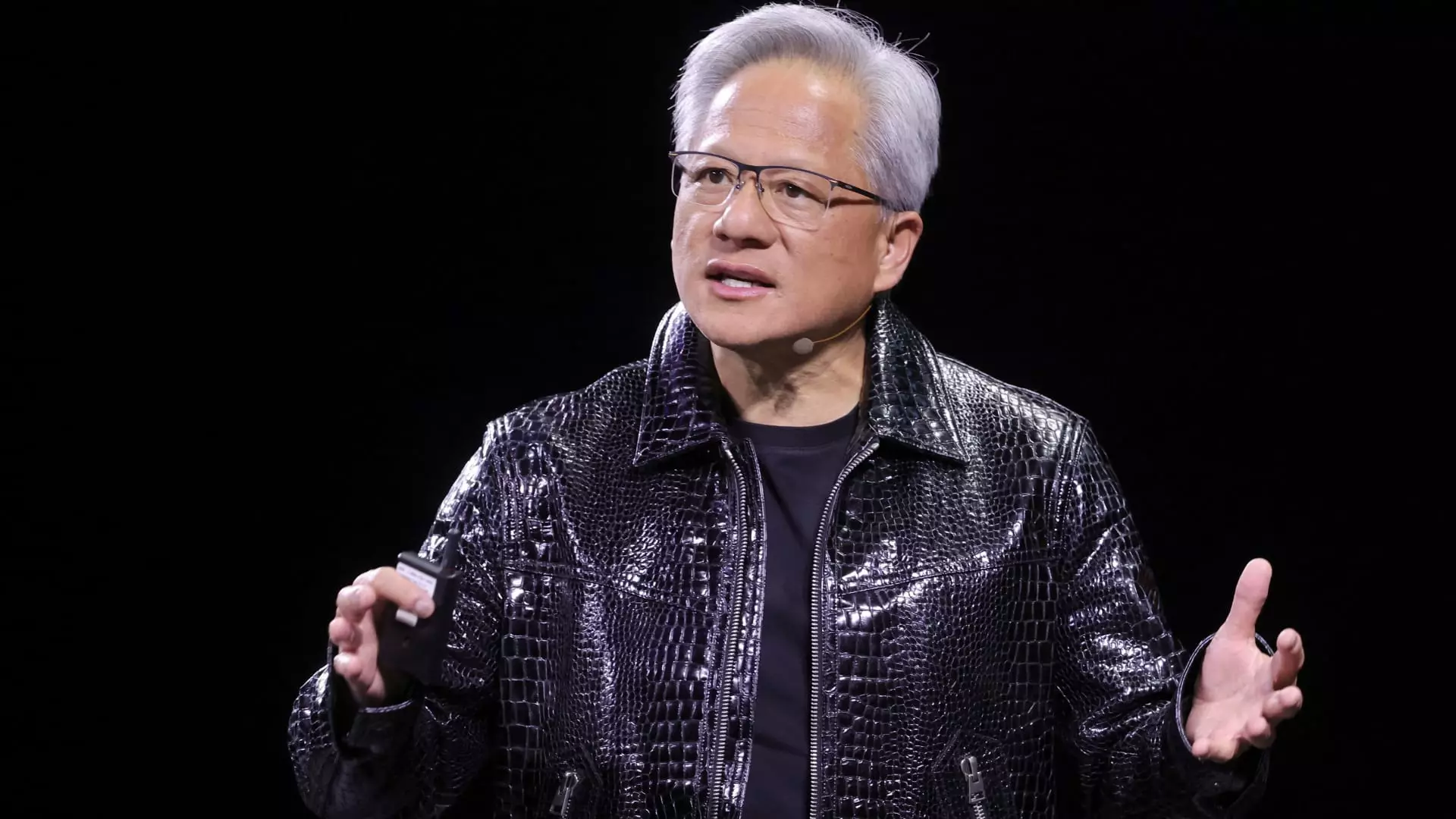The tech industry is always abuzz with exciting innovations, but when it comes to quantum computing, urgency and skepticism often collide. Recently, Nvidia held what it termed “Quantum Day,” hoping to rally support for advancements in this nascent field. However, the head of Nvidia, CEO Jensen Huang, found himself backtracking on previous statements, expressing surprise at the backlash caused by his earlier predictions. Indeed, this event felt less like a celebration of progress and more like a desperate attempt to salvage confidence in a sector still struggling to clarify its future.
Huang’s initial declaration that quantum computers would need at least 15 years to yield practical applications rattled investor confidence. This critical statement sent stock values spiraling downward, revealing the fragility of public faith in quantum technology. Following “Quantum Day,” an unforeseen fallout occurred: major players in the quantum sector like D-Wave and IonQ saw their share prices plummet, illustrating that Huang’s conciliatory remarks did little to mend the confidence rupture. What began as a day devoted to potential breakthroughs became a stark reminder of how fragile investor sentiment is in the face of uncertainty.
The Backstory: Misjudged Expectations
One of the disconcerting aspects of Huang’s comments is the dichotomy between promise and practicality within the quantum arena. Huang seemed to imply that a public relations overhaul was in order for quantum computing. His observation that framing quantum systems simply as powerful computers could be misleading is an interesting point. Perhaps he is correct that attempting to force-fit quantum’s complexities into the mold of classical computing raises unrealistic aspirations—a delusion that clouds judgment when approaching investments in nascent technologies.
Yet, instead of alleviating fears, Huang’s remarks seemed to exacerbate them. By suggesting quantum might not be a jump forward but rather an auxiliary tool that complements classical systems, he inadvertently undermined the very principles that invigorate the quantum narrative. The tech community needs strong leaders who inspire confidence, not those who timidly attempt to redefine their products post-facto. In a field as enigmatic as quantum computing, clarity is not just preferred; it is essential.
The Fallout: Stock Market Reactions
Stock reactions from particular companies such as D-Wave and Rigetti on “Quantum Day” serve as a glaring indicator of investor disillusionment. D-Wave’s staggering 18% drop illustrates just how sensitive markets are to leadership messages. Analysts weighed in, emphasizing that Huang’s attempts to reposition quantum computing could indeed be interpreted as a lack of faith in its trajectory. Needham analyst, Quinn Bolton, aptly noted that Huang’s fallout concerning quantum branding could be one of the most contentious discussions for investors moving forward.
For those who invested with high hopes, the decline can feel crushing. The mismatch between expectation and reality is a pattern that has characterized the broader tech landscape for years. Imagine the anguish of stakeholders who believed they were part of a futuristic wave only to face the sobering reality that we might still be decades away from impactful applications. Huang’s remarks reveal more than just market sentiment; they highlight the ongoing struggle within the quantum sector to define itself in a way that resonates with investors and innovators alike.
Leveraging GPU Technology: A Path Forward?
Despite the tumult of the stock market, Nvidia is at the forefront of integrating current technologies with the potential of quantum computing. The company’s strides in developing graphics processing units (GPUs) capable of simulating quantum functions raise intriguing possibilities, albeit not without significant skepticism. It begs the question: can these incremental advancements lead to the seismic shifts that investors dream about, or will they further exacerbate the disconnect between hope and reality?
Nvidia’s decision to construct a research center in collaboration with prestigious institutions like Harvard and MIT signals an earnest commitment to advancing the field. Yet without addressing the misleading narratives surrounding quantum computing’s timeline, Huang’s confidence, though well-placed, appears hollow. Investors are craving transformative solutions now, not promises tied to nebulous timelines that may extend decades into the future.
A Future in Flux: Navigating the Uncertainty
One cannot deny the tantalizing prospect that quantum computing presents—the potential to revolutionize industries from pharmaceuticals to finance is both thrilling and daunting. Yet the skepticism showcased at Nvidia’s Quantum Day underscores an important lesson: aspirations must align with reality. In a tech landscape always thirsting for the next revolutionary breakthrough, it would serve companies like Nvidia well to prioritize genuine transparency and realistic timelines over optimistic yet vague proclamations.
As the quantum sector pushes forward, a considerate recalibration in messaging and expectations may be the only way to bridge the chasm between potential and practice. The reality is that quantum computing could indeed change the game—but only if we successfully navigate the fog of misinformation and ambiguity that currently clouds the landscape.

